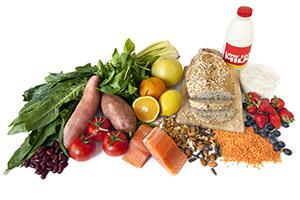
Nutritionist Kohila Govindaraju shares tips on foods that helps fight asthma triggers and foods to avoid.
Asthma, can be defined as a "chronic inflammatory disease of the airway" that causes the following symptoms:
- Shortness of breath
- Tightness in the chest
- Coughing
- Wheezing
When the airways get narrow as a result of swelling, extra mucous is produced. This makes breathing difficult and triggers coughing, wheezing and shortness of breath.
Asthma can be either allergic or non-allergic. For people with frequent respiratory tract infections, non-allergic asthma attacks are triggered by exercise, stress, anxiety and even hyperventilation, specially when one breathes in common irritants like chemical fuel, cigarette smoke etc. Allergic asthma gets triggered by irritants like dust, pollens, mold spores and skin shed by pets.
If one is allergic to molds, he should watch out for food items like cheese and mushroom, as the mold present in these products tends to trigger asthma attacks. It is also necessary to minutely read the labels on a product to determine if it contains one of the ingredients you are allergic to. It is also important to focus on reducing weight in case of overweight issues, as extra weight can exert pressure on the lungs.
Ways to control Asthma
Asthma attacks can be considerably controlled if one can reduce exposure to various irritants that trigger allergies.
Food products that are rich in flavonoids, Vitamin C, Vitamin A, Vitamin D, magnesium, monounsaturated fatty acid will help reduce the allergic symptoms.
Flavonoids possess antioxidants and anti-allergic traits. Flavonoids are plant pigments that lend colour to the flower, fruits and leaves. It is found in vegetables, nuts, seeds and dark chocolate. Lettuce, onions, basil leaf, cabbage, spinach, berries, soy seeds, dried beans are good sources of flavonoids. Flavonoid in apple helps to open up airways. Apple with peel is higher in flavonoids compared to apple flesh alone.
Vitamin C, a powerful antioxidant, helps to ward off lung damage and reduce wheezing,a common symptom of asthma. Citrus fruits, kiwi, strawberries, papaya, red and green bell-peppers, mango, pineapple are good sources of Vitamin C. Bromelain, an enzyme in pineapple, is an anti-inflammatory that helps one recover faster after workouts.
Beta carotene, a yellow pigment in most fruits and vegetables, is converted to Vitamin A in human body. Vitamin A helps maintain healthy skin and mucous membranes that prevent against infection of nose, throat and lungs. Beta carotene, found in vibrantly coloured fruits and vegetables like apricots, green peppers and sweet potatoes help reduce respiratory tract infections and exercise-induced asthma.
Flaxseeds are good sources of magnesium. Food rich in magnesium helps relax muscles surrounding the lungs, thereby opening the airways. Chards, avocado, banana, pumpkin seeds, flaxseeds, sunflower seeds, cashews, pine nuts, brazil nuts, edamame (fresh soybeans), kidney beans, chickpeas, black-eyed peas and lentils are also good sources of magnesium.
Vitamin D dampens down inflammation and helps ease the symptoms of asthma. Dairy products are good sources of Vitamin D. But if you are allergic to milk, you can go for non-dairy food like tuna, salmon, egg yolks and mushrooms. Exposing yourself to sunlight will help produce Vitamin D in the body.
Avocado, a good source of monounsaturated fatty acids, is also a good source of glutathione, that helps protect cells against free radicaldamage. Omega three fats can provide an anti-inflammatory effect that counters bronchial inflammation, a very common symptom of asthma.
Regular physical activity will help maintain body weight and a balanced meal will help reduce the symptoms of asthma.
Don't forget to download our comprehensive ebook on Asthma Management here. If you have registered before, please make sure you are logged in. If you have not registered before, you will need to register.
Click on the image below to download the E-book for Managing COPD and Bronchitis








